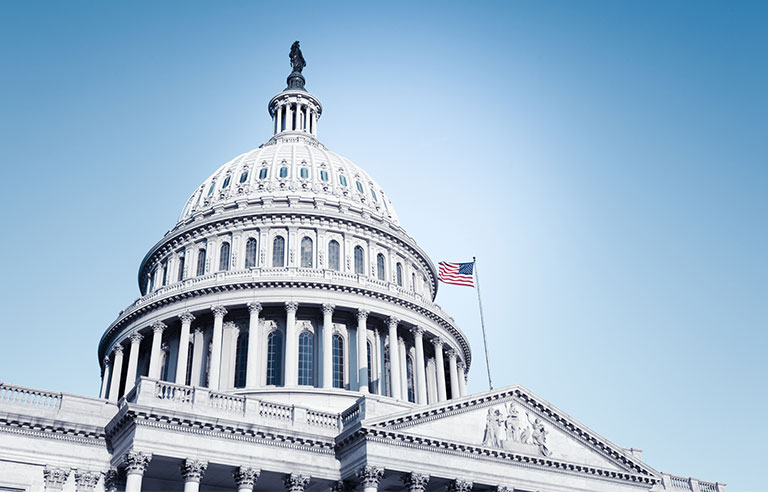
TrustWell’s Quarterly Market Review: Q3 2021
October 1, 2021
Important Financial Changes to Consider From the Build Back Better Act
December 1, 2021By Chris Daunhauer
A benefit of serving (or having served) in the US military is that such service usually qualifies a person to buy a home using a VA-backed mortgage. The words “always” and “never” rarely (dare I say never?) apply to investing and financial planning conversations, so the short answer to the title question above is NO.
There are, however, some situations where a VA-backed mortgage may be better than a regular conventional mortgage. Knowing the pros and cons of VA mortgages will help you make a good choice.
Most, but not all, servicemembers, veterans, and widowed military spouses qualify for a VA mortgage. But not all homes do. Most home types are OK (condo, single family, etc.), but you cannot use a VA mortgage to buy or refinance a non-owner-occupied property. That means no commercial buildings, no rental properties, no vacant land (even if you intend to build a home on it someday), and no vacation homes. You can, however, use a VA loan for a multi-unit residential property if you will be living in one of the units.
By far the primary appeal of a VA loan is that the borrower can buy a home with no money down. Not requiring any down payment allows marginal borrowers to get loans, buy homes, and begin building equity in something they have a deed for.
A VA loan is not made directly by the government. So in any case you’ll be dealing with a bank or credit union or other mortgage broker for the application, closing, and monthly payments. The VA just issues a guarantee to the lender that stands in place of the cash down-payment that your lender would otherwise require of you.
VA loans don’t require that the borrower pay PMI, either. Eliminating that expense further helps servicemembers and vets fit homeownership into their monthly budgets. Interest rates for VA loans vary, depending on the borrower’s credit history and other factors, but qualifying for a VA loan is generally easier than for a conventional loan and the VA’s backing reduces risk of loss for the lender and usually earns the borrower a lower rate. Also, origination fees are capped at 1%, debt-to-income rules are relaxed for VA loan borrowers, and there’s never a prepayment penalty allowed. Many VA mortgages can be refinanced by the original borrower if rates go lower using a streamlined process that does not require another appraisal, and VA loans are also often assumable by the next owner of a home that was purchased using a VA mortgage.
Those are all advantages to a VA-backed mortgage. But there are some significant downsides, too.
The major disadvantage of a VA mortgage is the special “funding fee” that all VA mortgage borrowers must pay at closing as a condition of receiving the loan. This special funding fee goes to the Veterans Administration and helps cover the cost of administering the VA home loan program. It’s calculated as a percentage of the amount borrowed and the percentage varies based on how much the borrower puts down and how many times the borrower has used his or her VA mortgage benefit in the past.
| Amount of down payment | First time use of VA mortgage | Subsequent use |
| None | 2.3% | 3.6% |
| 5% to 9.99% | 1.65% | 1.65% |
| 10% or more | 1.4% | 1.4% |
A first-time VA mortgage program borrower who does not put any money down pays a funding fee of 2.3% of the borrowed amount. This fee can be financed along with the house (rolled into the total amount borrowed, IOW) but it is always in addition to the other regular mortgage closing costs like doc stamps, appraisal, survey, origination fee, etc.
The funding fee percentage is higher for borrowers who have used the VA mortgage program before (as high as 3.6% for repeat VA borrowers who put no money down) and it is lower (as low as 1.4%) for VA borrowers who put at least 10% down.
The VA funding fee is a one-time expense that is not pro-rated and never refunded, even if the borrower sells the house soon after the closing or refinances it using a non-VA loan.
Three other, lesser disadvantages: Not all banks offer VA mortgages, and VA loans cannot be used to buy manufactured or mobile homes without additional engineering and inspections. Also, all VA loans require a home inspection and an appraisal of the property being purchased. In hot seller’s markets, a purchase offer on a house that is contingent on a home inspection and an appraisal (normal and common safeguards, BTW) is not as appealing to the seller as an offer with no contingencies and that may cause the VA borrower’s offer to be rejected.
___________________________________________
I’m delighted our servicemembers and vets have the option of a VA mortgage. The program is a bit of thanks from the nation to those who have served it. For some borrowers in some situations it may be a good option, as long as they plan to be in the home for many years and don’t let the lure of “no money down” overwhelm their thinking and cause them to take on a monthly payment they cannot afford.
As with any investment or financing decision, you should consider the costs and benefits of each option carefully. I’m entitled to a VA mortgage, but I’ve never used the benefit, because a regular mortgage was always better (cheaper) for me.
For the vast majority of prospective homebuyers (even vets like me), the better course is to cultivate an appealing credit history, save up a strong cash down-payment of 20% or more, and do any necessary mortgage borrowing using a conventional mortgage.




